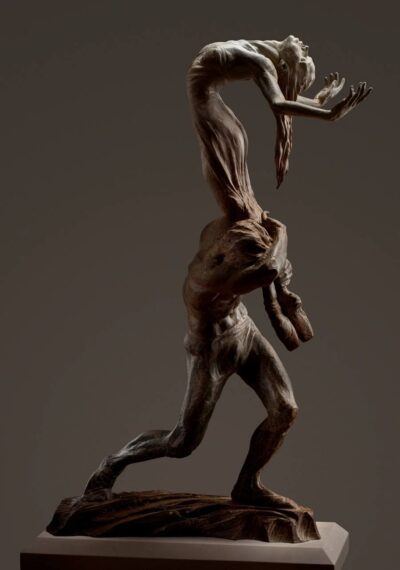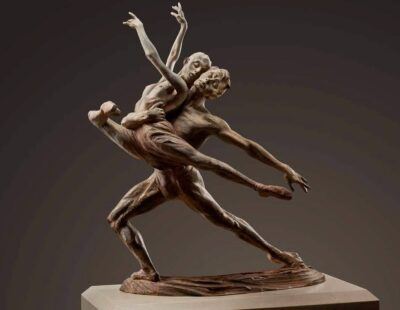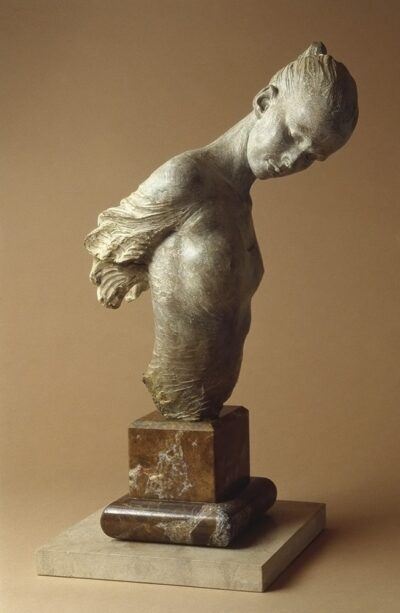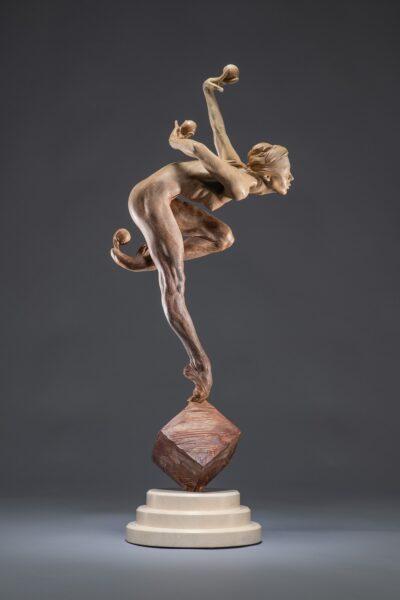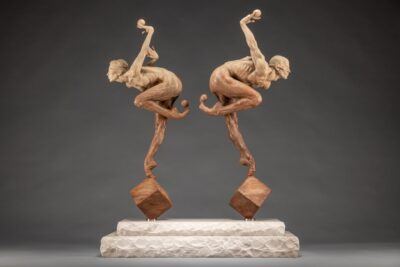Richard MacDonald
(American, born 1946)
Biography
One of the most collected figurative bronze sculptors at work today, Richard MacDonald has achieved this stature through a consuming passion for his work and an unrelenting dedication to its quality and integrity. A native Californian, MacDonald was educated at the prestigious Art Center College of Design and received a Bachelor of Professional Arts, Cum Laude. In the 30 years of his artistic career, MacDonald has achieved international distinction for his sculpture, paintings, and drawings, and has been the recipient of many national and international awards. His fascination with the human figure and human emotions has led MacDonald to focus on sculpting figures of mimes, dancers and athletes, each of which conveys a sense of joy and pays tribute to the beauty of the human form.
MacDonald has been awarded major commissions, several of them within the first years of his sculptural career. In 1985, he sculpted a 9-foot figure of Christ for St. Patrick’s Episcopal Church in Atlanta, incorporating stained glass windows and lighting around the seemingly floating figure. Selected from a field of 180 sculptors, MacDonald sculpted a statue of Stephen F. Austin in 1986, then designed and built its fountain with native red granite for the sesquicentennial celebration of Texas. In Architectonica, proposed in 1987 for MGM’s corporate headquarters, MacDonald developed a design incorporating mythical Greek figures emerging from a bas- to full relief in a spiraling 18-foot sculpture. In 1990, he honored State of Alaska founder William Henry Seward with a bronze likeness for the new Z.J. Loussac Public Library in Anchorage, and also designed the surrounding plaza.
MacDonald received worldwide critical acclaim in 1996 for The Flair. Created in tribute to the 1996 Olympic Games, the 26-foot, 3-ton bronze monument was donated by the artist to the city of Atlanta and state of Georgia. Gracing Georgia International Plaza, The Flair stands as a testament to the determination and dedication of all individuals in the pursuit of excellence. The artist designed the surrounding plaza symbolic in design, including a 3,600 square-foot granite plaza, a large reflective pool and fountain engendering movement and essence of life and circumference seating.
MacDonald is also known for a monument commissioned to commemorate the 100th U.S. Open Championship. The heroic sculpture celebrates the triumph of the human spirit as it pays tribute to the greatest athletes of this century. The image represents the anatomy of the golf swing and the dawn of a new Millennium as it encircles centuries of excellence past, present and future. The base, designed by the artist, is engraved with the past 100 winners on the front including a special bronze plaque for 2000 championship winner, Tiger Woods. On the backside of the monument the next 100 winners will be engraved. The monument resides permanently at Pebble Beach, California. MacDonald is currently involved in a major commission for a sculpture garden in China.
Prior to beginning a full-time career in sculpture in 1983, MacDonald had achieved national prominence as an illustrator. The classically trained painter created commissioned works for major corporations, including American Express, Anheuser-Busch, AT&T, Coca-Cola Corp., and IBM. His sports illustrations include commissioned pieces for the Olympics and drawings that are represented in the NFL and NBA Halls of Fame. Most recently, he has created a series based on dancers from the Royal Ballet in London, which were unveiled in a ceremony featuring Prince Charles.
MacDonald’s work has been featured in numerous art books throughout the United States, Europe and Asia, including his own recently published book “Richard MacDonald, Sculptor.”
